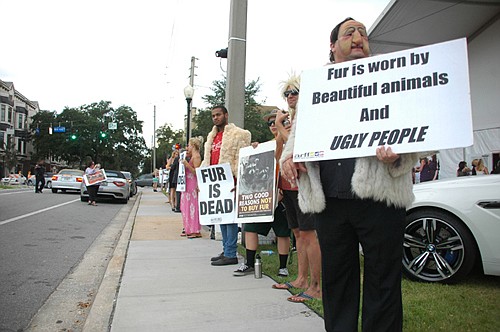- April 18, 2024
-
-
Loading

Loading

A split verdict by the U.S. Court of Appeals may have upheld an ordinance banning “targeted” picketing outside homes in Winter Park, but not without declaring a similar provision from another ordinance unconstitutional more than five decades after City Commissioners passed it through.
Judges declared a portion of the city’s loitering ordinance unlawful on March 20 after realizing it gave residents the right to create a 50-foot no protest buffer around their homes, including any parks, sidewalks and other public areas.
The ordinance states that residents with a “no loitering” sign outside their home can call the police if anyone encroaches on that buffer.
Generalized language in the provision leaves the door open for residents to phone the authorities on protesters based solely on personal views.
“In other words, private citizens can decide that they dislike the content or viewpoint of a speaker’s message and then contact the Winter Park police to enforce [the ordinance],” the verdict reads on the U.S. Court of Appeals for the 11th Circuit website.
“This strikes us as unprecedented.”
Winter Park Director of Communications Clarissa Howard said that residents have technically had that right for 54 years. The U.S. Court of Appeals stumbled upon the loitering ordinance while reviewing an appeal of Winter Park’s picketing ordinance – a law that banned protesters from standing within 50 feet of a targeted residential home.
Local residents Winnifred Bell, Allura Lightfoot and Deanna Waller opposed the law and handed the city a lawsuit in October 2012 for potentially infringing on their constitutional rights, less than a month after City Commissioners voted the ordinance through.
The district court later granted the city’s motion to dismiss the lawsuit in March 2013.
An appeal from the disgruntled residents followed.
Judges chose to uphold the picketing ordinance as facially constitutional due to it being content-neutral and leaving open alternative channels of speech.
“Section 62-79 does not regulate speech on the basis of the content or viewpoint of the speech,” the verdict reads. “Rather, it regulates the time, place, and manner in which Plaintiffs can speak.”
The ordinance originally came about in the aftermath of a protest outside the home of Planned Parenthood of Greater Orlando CEO Jenna Tosh in August 2012. Tosh told authorities that she felt threatened by the group of anti-abortion protestors outside her own home – a comment that prodded the city to take action.
It’s paramount that the city defend its residents’ right to free speech, said Mayor Ken Bradley, who voted against the picketing ordinance when it passed by a vote of 4-1.
“I have voted throughout this process to err on the side of the rights of our citizens to picket and express their thoughts – no matter how heinous they may be,” Bradley said. “This is one of the great rights which separate us from the world. You can publicly share without any retribution your thoughts about your mayor, your commission, your president, your neighbor, yourself.”
“I hope to always be a defender of those rights.”
A revised loitering ordinance will go before the City Commission at a future meeting, Howard said.